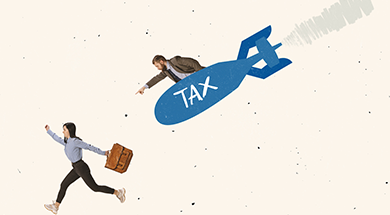There are lots of reasons to keep fit but very few of them have to do with how we earn our income. As a result, a tax deduction for a gym membership isn’t available to most people. And yes, the Tax Office has heard all the arguments before about how keeping fit reduces sickness and therefore is important to earning an income, and ‘…the way I look is important to my job’.

In general, a tax deduction for fitness expenses is only available if your job requires you to have an extremely high level of fitness. The nexus between how you earn your income and the deduction is about the physical demands and requirements of your specific role. Firefighters are a case in point. A person with what the ATO describes as a “general duties firefighter” role cannot claim a deduction for the money they have spent keeping fit, but a firefighter in a specialist search and rescue operations team for example, trained in a range of specialist skills including structural collapses and tunnel emergencies, and who is tested on fitness and ongoing strenuous physical activity as an essential part of their job, would be able to claim fitness expenses. Similarly, a professional ballet dancer is likely to be able to claim their fitness expenses. A model however, might not be able to claim their expenses as, while they need to look a particular way, their modelling role does not require physical training and exertion. So, access to a deduction is about the specialist physical demands and requirements of your role.
A recent case before the administrative appeals tribunal (AAT) explored the boundary of who can claim fitness expenses, confirming that a prison dog handler could claim a deduction for the cost of his gym membership. In this case, the dog handler was responsible for training and maintaining two dogs. He was required to be available to assist in emergencies that might arise. While these emergencies didn’t arise often, the handler had to be prepared for the possibility of an emergency arising at any time. Reaching this decision, the AAT noted the handler:
- Was required to maintain a high degree of anaerobic fitness (including muscle strength sufficient to control a large German shepherd on a lead in a volatile situation);
- Was required to maintain a high degree of aerobic fitness (that is, a degree of speed and agility sufficient to enable him to move effectively with, and control and direct, his dog in an emergency); and
- Must also be prepared to restrain prisoners himself.
While the employer in this case did not specify any level of fitness for the dog handler role, the AAT held that a superior level of fitness was implicitly demanded. However, it did not all go the way of the dog handler. His claim for supplement expenses, travel to and from the gym, and gym clothing was denied.
While some commentators have suggested that the floodgates are now open for gym membership claims, as always, the devil is in the detail. To claim a tax deduction for fitness expenses it is generally necessary to be part of a specialist workforce. Police Officers for example cannot generally claim fitness expenses even though, like the dog handler in the AAT case, they need to respond quickly to emergencies and may need to subdue people. Unless they are part of a specialist response unit that is required to have a specific, high level of fitness, they are unlikely to be able to claim their gym membership expenses.
So, for the rest of us, gym memberships will continue to be a labour of self-love and care and not an essential part of how we earn our income.

LEGAL
Liability limited by a scheme approved under Professional Standards Legislation.
Investngro Pty Ltd ABN 53 113 102 695 trading as Murray Nankivell Financial Planning, is an authorised representative of Count Financial Limited ABN 19 001 974 625 holder of Australian financial services licence number 227232 (“Count”). Count is owned by Count Limited ABN 111 26 990 832 of GPO Box 1453, Sydney NSW 2001. Count Limited is listed on the Australian Stock Exchange. Any taxation and accounting services are provided by Murray Nankivell and are not within the authority Count. The information on this web site is not financial product advice and is provided for information only.





